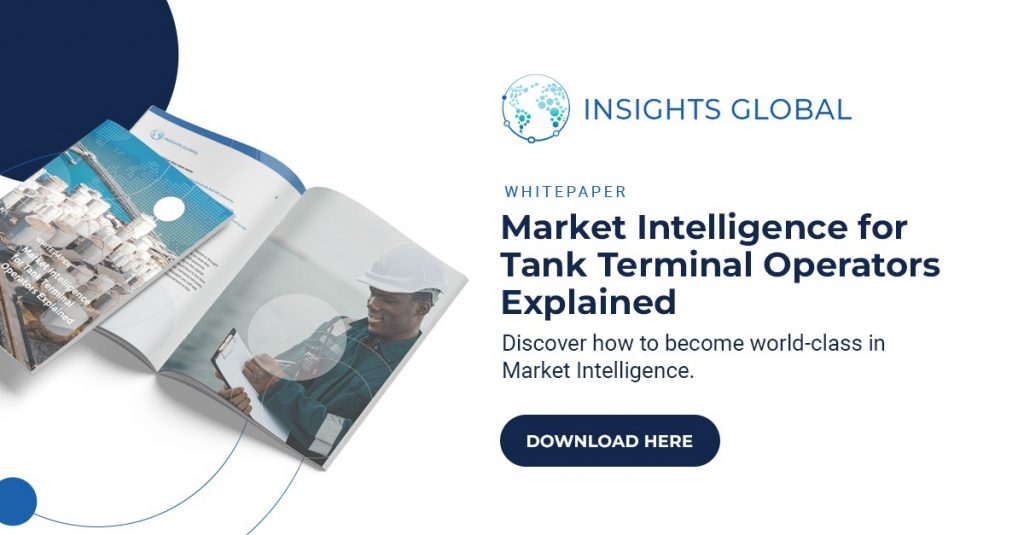How good is your current awareness of market trends?
Current awareness is the starting point of good market intelligence for any company operating in a competitive market. Entrepreneurs often make intuitive decisions, but when they are supported by hard facts and good data entrepreneurial risk taking is no longer a game of roulette but the smart and successful way to take calculated risks.
What do we mean by “current awareness”? Well, it simply means that as a company you have sufficient understanding of what’s happening in the terminal industry and the wider economy at this moment.
What are clients looking for? What are competitors doing? Which tech trends influence the market? How is the pricing of services changing? Which mergers and acquisitions are taking place? Is there news on the regulation front in any of the relevant geographic areas? Are there important changes in the political landscape?
Structure “current awareness” within your organization
In order to do this right “current awareness” shouldn’t remain a vague undefined asset floating around somewhere somehow in the organization, but it should be systematically structured to make sure that your organization is always up-to-date on what is happening in the terminal market and – importantly – where your company stands relative to that. Gathered information should be easily accessible to support each employee in their work and decision making.
Setting this up could involve these measures:
- allocating some work hours of certain employees to spend on research activities
- structuring how employees write-up, report and store their findings
- creating an internal market intelligence network connecting all management levels
- subscribing to relevant periodical news sources
- outsourcing part of the intelligence work to an external market researcher
In the end this should lead to a situation where each manager feels supported by the best possible information. A well-informed manager who enters a (price) negotiation for instance will always fare better than a manager who comes across as uninformed. A director or management team eyeing a take-over will not just make a better decision, but they will make it faster, before the competition snatches it away. Research has proven that companies with good systemic market intelligence outperform the competition on all levels.
An example of a market trend that requires current awareness
So can we give an example of a market trend in the terminal industry, that requires good current awareness to understand it fully, to anticipate well and to position your company accordingly?
The energy transition is definitely a good example. Oil and gas are no longer the prime areas of investment. Alternative fuels are being developed and are growing in market share. One product in particular is looking for terminal space across the world and that is ammonia. This liquid bulk substance has two uses:
1: Acting as an intermediary carrier of hydrogen that’s produced in sunny parts of the globe and that needs to be transported to areas with less sun but high energy demand. So hydrogen is chemically bound in ammonia and shipped around the world and in destination countries it is decomposed again to free the pure sustainable hydrogen fuel source.
2: Acting directly as an alternative sustainable fuel for ships and tankers currently burning dirty marine fuel oil as their fuel source.
Both applications have different implications for required terminal space in ports around the globe. This trend will lead to substantially less investment in oil and gas terminals and high interest in tanks that can hold ammonia.
It also warrants a reorientation of the commercial acquisition process: you may want to get acquainted with a new group of potential customers who are entering this market. And if you talk to them you will want to come across as knowledgeable. So if your company at the moment has no detailed information on ammonia requirements, then you may want to invest time to get this knowledge.
An important aspect of current awareness is also the ability to think in scenarios and structure your information gathering accordingly.
Let’s take the above example of ammonia. You would not want to forget about oil and gas completely of course. You would want to continue to gather information about all product groups and customers that use them. You might however assign the task of following these trends to different people inside your organization and maybe ask an external consultant to write up a report about an area that you are currently less aware of. In this way your knowledge base for whatever may happen in the market grows in all dimensions.
Thinking in possible scenarios as a model for your current awareness, then leads over to the next important application of market intelligence: strategy. In a subsequent blog post we will delve into that and learn how market intelligence will support laying out a strategy and wisely choosing how to devote your company’s resources to it.
Whitepaper: Market Intelligence for Tank Terminal Operators Explained

